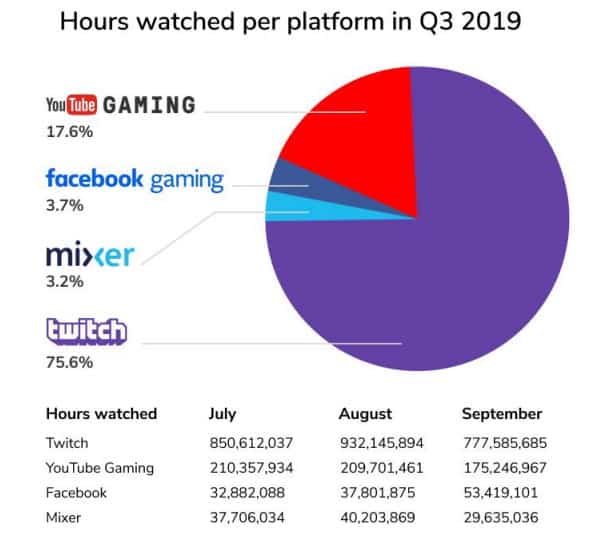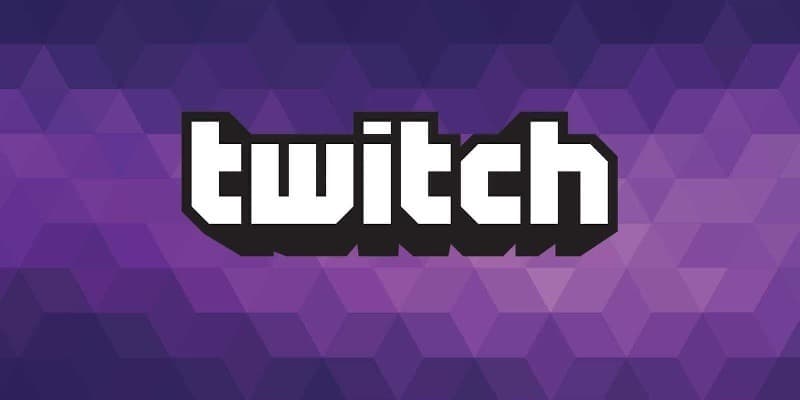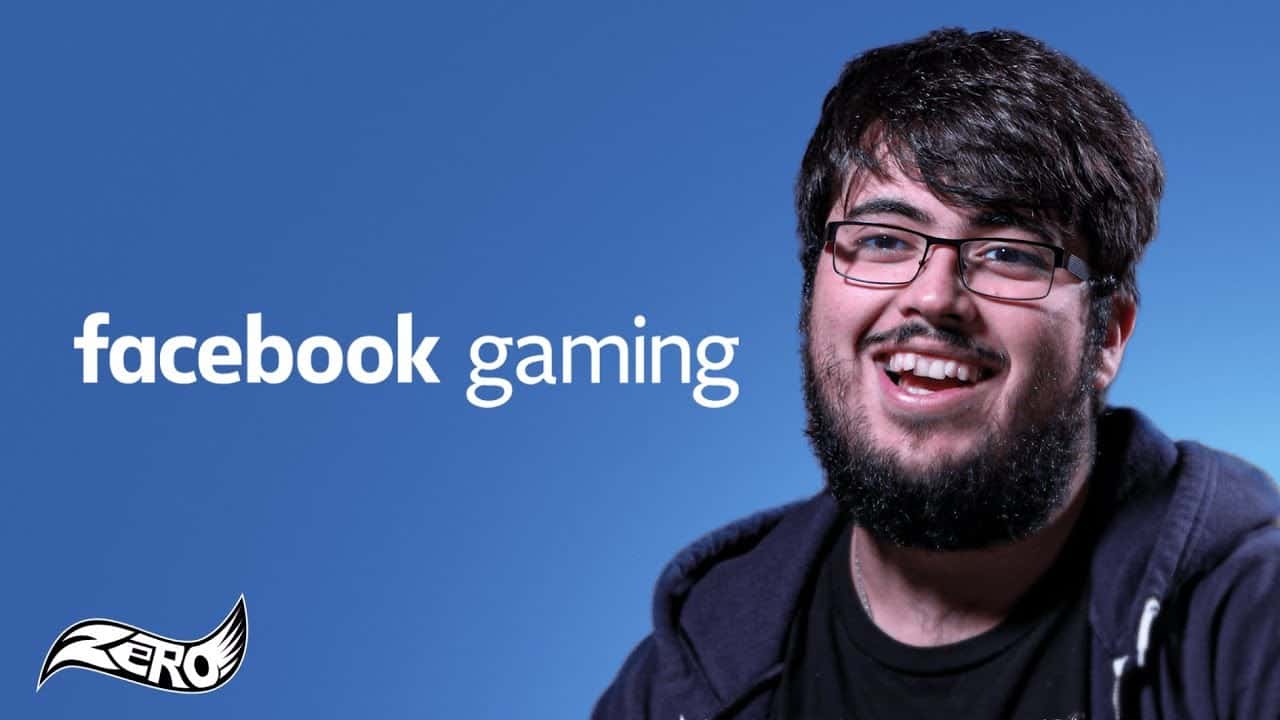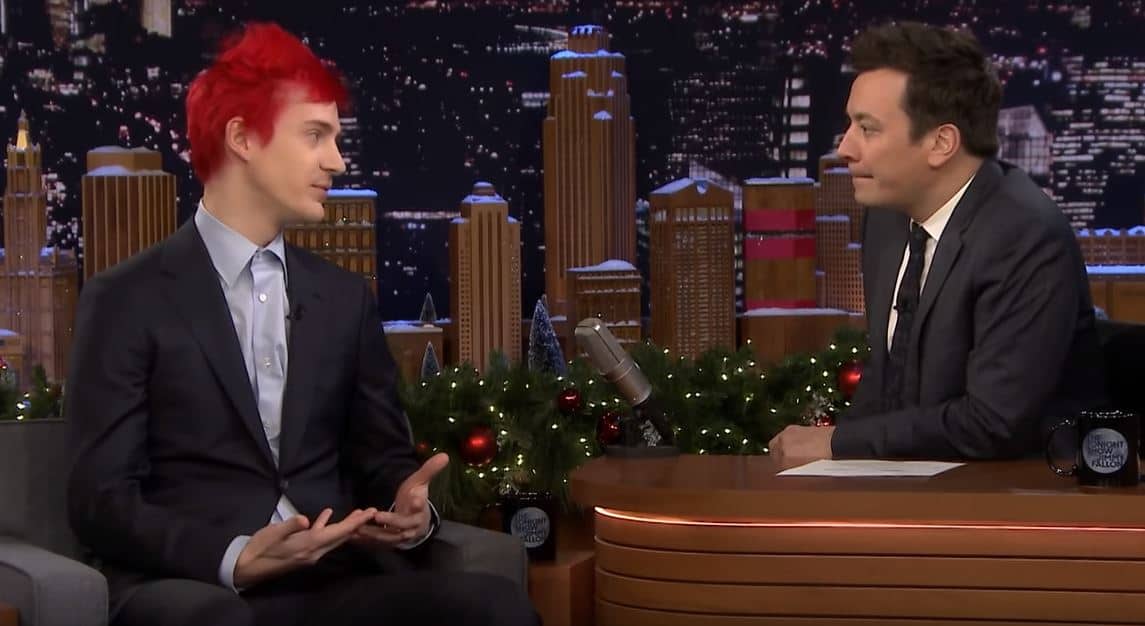In the months following Ninja’s take on The Decision, the Streamer Wars quickly ramped up into an all-out arms race. Much like professional sport leagues such as the NFL, MLB, and NBA, streaming companies attempted to entice potential streamers to their platforms via generous signing bonuses and salaries, amongst other benefits in an effort to convince them to switch platforms.
At the root of this process was streaming companies beliefs that by poaching a star personality from streaming giant Twitch, they were not just robbing a direct competitor of a tentpole asset, but that they could generate additional network effects for their platform via an increased audience presence as the streamer in question’s fanbase increasingly engaged with their platform.
Shortly after Ninja’s own departure from Twitch, two other well-known streamers, retired Counterstrike Global Offensive pro Michael “Shroud” Grezesiek and Destiny and Borderlands streamer Cory “King Gothalion” Michael, would join Ninja on Mixer. Deaf 13-year-old Fortnite pro Soleil “Ewok” Wheeler followed, signing an exclusive contract with Mixer.
Not to be outdone, YouTube Gaming quickly jumped into the fray by grabbing 100 Thieves content creator Jack “CouRage” Dunlop to bolster its own platform. Mirroring Ninja’s departure, CouRage produced his own sketch announcing his departure from Twitch.
Facebook Gaming also became involved, grabbing retired Super Smash Bros. professional Gonzalo “ZeRo” Barrios, Hearthstone player Jeremy “DisguisedToast” Wang, and Vlog Squad member Corinna Kopf.
However, it’s not just primetime streamers that are reaping the benefits of streaming opportunities outside of Twitch. Many smaller and mid-sized streamers have stated that they make more money on Facebook Gaming than Twitch, posing an interesting opportunity for smaller, less monetized channels looking for growth.
With companies willing to give streamers guaranteed money and benefits in an effort to procure the Ninjas of the future, an increasing number of streamers may leave Twitch in pursuit of perceived greener pastures.
Twitch Fights Back

(From left to right) LIRIK, TimTheTatMan, and Dr Lupo all resigned with Twitch.
As Twitch began facing increased competition for its historical talent pool, the company decided to lock up their core remaining S-tier streamers.
Benjamin “DrLupo” Lupo, Saqib “LIRIK” Zahid, and Timothy “TimTheTatMan” Betar all elected to sign multi-year, exclusive streaming deals with Twitch. With TimTheTatMan having 4 million followers, DrLupo 3.5 million, and LIRIK 2.4 million, Twitch not only mitigated the potential impacts of losing three of the most well-known creators in the space, but also took a substantial step to ensuring that their roughly 10 million combined followers would continue to spend the majority of their viewing time on Twitch itself.
According to esports consultant Rod “Slasher” Breslau, it is believed that the three streamer’s multi-year contracts are worth millions of dollars each, representing a substantial investment in content by Amazon-owned Twitch.
The streaming giant, not content to simply maintain its existing talent, would also take a page from their competitors – poaching Fortnite player Nicholas “Nick Eh 30” Amyoony and his 4.6 million followers from Youtube Gaming.
Twitch also got some back up from popular streaming personality Herschel “Dr Disrespect” Beahm, who actually scoffed at shroud’s decision to move to Mixer. He mocked Mixer for “wanting to be relevant.”
He also brought up why Twitch is the superior platform, noting high engagement compared to Mixer and monetized streaming sessions.
“The man got paid. Did he get paid more than the Doctor? Did the guy with the blue hair – the little Dragon Ball Z anime guy – did he get paid more than the Doctor? No, both of them didn’t,” Dr Disrespect said.
For a not insignificant period of time, Twitch had no real competition in the streaming space. Since Twitch’s debut back in 2011, it was seen as THE gaming platform for streamers. The common perception was that streamers that streamed outside of Twitch were taking a significant as the exposure they would be able to generate from a non-Twitch platform would most likely be minuscule compared to that of the streaming giant, which had already aggregated a substantial userbase that had shown a willingness to digest gaming-dedicated content.
However, as is frequently the case, monetary incentives and the expanding userbases of competitive offerings, thanks in part to their integration capabilities (e.g. Mixer with Xbox and Windows), have shown that there are other fish in the see besides Twitch.

of Q3 2019, Twitch still had far and away the llargest streaming market share with 75.6% of all content hours streamed occurring on its platform. YouTube Gaming is 2nd with “just” 17.6%.
While Twitch is still the dominant streaming platform, the initiation of the Streamer Wars has shown that it now has some serious competition. As of 2019, Twitch was the number one platform, garnering 75.6% of the overall content streaming market. Twitch’s closest competitor is YouTube Gaming, with 17.6% of the market share. In a distant third and fourth place, Facebook Gaming garnered 3.7% of the market share, with Mixer at 3.2%.
The coronavirus pandemic in the first quarter of 2020 has turned even more people to streaming platforms for entertainment during the lockdown. But has it helped the smaller streaming platforms catch up to Twitch? Well, Twitch reached over 3 billion hours watched in Q1 of 2020, a new record. But it looks like its competition also saw some big boosts.
Twitch made up 65% of the total hours of streaming watched in 2020 thus far. That’s a little over 10% less than 2019, most likely due to the content creators the other platforms signed throughout the last year. YouTube Gaming made up 22%, followed by Facebook Gaming at 11%, much higher than the 3.7% it had last year. But Mixer has actually gone down, now at 2% of the viewership in 2020 thus far.
Either way, Twitch’s share of the content streaming market has experienced a year-over-year decline, proving that the streaming Goliath is vulnerable after all.
It’s Not Just About Views or Subscribers Anymore

Signing contracts with guaranteed money places less importance on getting subs, donations, and playing ads.
So, what is the root cause behind why more and more streamers are leaving Twitch for competing platforms?
The answers undoubtedly differ amongst the different involved parties. For some it may be the lure of guaranteed money, for others it could be the freedom to stream more than one particular game, and for others it could even be the increased potential for branding initiatives outside of those typically associated with streaming.
Ninja and his wife and manager, Jessica Blevins, undoubtedly had these considerations in mind when making their decision to move to Mixer.
When Ninja signed his exclusive contract with Mixer back in August 2019, many believed that it was a bad decision. His critics predicted that he would see a significant decline in viewership as many of his more casual fans would ultimately refrain from migrating to Mixer, in addition to Mixer’s smaller viewership footprint to begin with.
From a viewership metrics standpoint alone, these critics have been proven correct. Back when he streamed on Twitch, Ninja would often see viewership numbers from 40k to 100k viewers in a given day, with one stream involving rappers Drake and Travis Scott, along with Pittsburgh Steeler’s wide receiver Juju Smith-Schuster having peaked at just over 600k.

Ninja, JuJu, Drake, and Travis photo of them playing Fortnite together.
Credits: JuJu Smith-Schuster’s Twitter
On Mixer, Ninja averages around 7,800 viewers daily on the Microsoft platform, a far cry from his 100k daily viewership days on Twitch. Blevins’ total watch time (total hours of content viewed) for the third quarter of 2019 also showed a trend of decline, decreasing by 10.6%.
If having the most subscribers and content total viewing time were the main goals of Ninja, then staying at Twitch would have been the obvious choice. Yet, Blevins never saw viewership and subscription numbers as an indication of his overall success.
Tyler and Jessica had different goals when signing with Microsoft, but both saw the potential upside in aligning with Mixer. By sacrificing his large Twitch fan base and moving to Mixer, they were rewarded with guaranteed money – rumored to be tens of millions of dollars in total, early-access to upcoming, new Microsoft products and games, increased freedom to choose what to stream and when to stream it, and expanded branding opportunities outside of gaming.
The last two, freedom of choice and more expansive branding opportunities, were major selling points to both Tyler and Jessica.
Not Having to Stream 24/7 and an End to Sub Dependence

Anazon (Twitch) is now finding itself in a fierce bidding war with other tech giants Facebook (Facebook Gaming), Google (YouTube Gaming), and Microsoft (Mixer) over streaming talent in what many see as the next frontier of attention aggregation.
One of the biggest misconceptions about streaming is that it is an easy way to make a living. To many outsiders the idea of streaming video games 8-14 hours a day is nothing short than a dream job However, in reality the life of a streamer is anything but glamorous for the vast majority of time. The demanding schedule needed to be successful streaming can be quite brutal on those who actually do it for a living, in no small part because it allows for little to no freedom and flexibility.
Similar to hourly-paid workers, streamers make the vast majority of their income while streaming. Donations, new subs, and advertisements occur most frequently while a streamer is online. When streamers are offline, there’s no guarantee that they’ll make money. This lack of security puts immense pressure on content creators to stream8-14 hours per day, 6-7 days a week, in an effort to maximize their earnings potential.
In the event a streamer does choose to take time off, they typically experience a drop in the number of subscribers or followers they have – even if they are only gone for a period of a few days. Ninja knows this from first-hand experience.
Back in June 2018, Blevins took two days off from streaming in order to fly out to Los Angeles to attend E3 and compete in Epic Game’s celebrity-streamer Fortnite Pro Am. When he returned home to stream two days later, he found he had lost 40k subscribers.
He went on tweet out his frustration of being dependent on streaming 24/7 in order to maintain an audience.
“Wanna know the struggles of streaming over other jobs? I left for less than 48 hours and lost 40,000 subscribers on twitch. I’ll be back today (Wednesday) grinding again.”
After this experience, Ninja wanted to look to diversify his income away from being so dependent upon subscribers. Both he and Jessica wanted whatever came next to offer increased freedom and stability.
They found both in Mixer, where the money in his contract was guaranteed and his income was no longer tied to subscribers, donations, sponsorships, or ads.
After he signed with Microsoft Ninja was finally able to take a couple days off from streaming to spend time with family without the guilt or pressure of worrying about the financial ramifications of doing so.
From One Game to Many: Becoming a Variety Streamer

ZeRo moved to Facebook Gaming in early December 2019 to pursue his passions of competing in motorcross and becoming a variety streamer.
Another benefit of contracts involving guaranteed money is the ability to branch out to other games and become a variety streamer.
The vast majority of streamers are known for creating content associated with a single title, or maybe two at most. Both Ninja and DrLupo became known for playing the popular battle royale game Fortnite, while ZeRo is known for his Super Smash Bros. play, and Disguised Toast for his Hearthstone and Teamfight Tactics gameplay. As with all things, over time, many streamers can become bored of playing the same game for 50-80 hours a week – even if it is their meal ticket.
However, problems can quickly arise when streamers try to branch out to games other than those that they are known for. Since their audiences are typically used to streamers playing a particular game, many will tune out if they begin streaming new, unfamiliar content. In the event a streamer transitions to variety streaming, some experience an 80% or greater drop in total viewership. With this potential loss in viewership comes a loss in subscribers, ad revenue, and donations.
Guaranteed contracts go a long way towards mitigating concerns around variety streaming as well. These contracts allow content creators to pursue variety streaming with minimal risk, as their contracts guarantee a stable income, regardless of whether or not the streamer starts losing subscribers and experiences a decline in total watch time.
Becoming a Brand Outside of Gaming

DrLupo games from his home in Omaha, NE. He plans on hanging up the headphones and retiring by age 40.
Credits: Benjamin Lupo
The guaranteed contracts that have seen a surge in popularity following Ninja’s Mixer decamp also allow streamers the freedom to build their own brand outside of gaming.
ZeRo, the former Super Smash Bros. professional, has openly talked about pursuing a future in motorcross and while becoming less dependent on his Super Smash Bros. streaming career. DrLupo has a similar inclination to move away from purely being a professional streamer, with the 32-year-old gamer thinking that his streaming lifestyle won’t last forever.
Other content creators also want the flexibility to actively participate in “Just Chatting” streams, where they are able to talk about different aspects of their lives, rather than just play video games.
Ninja also craves the freedom brand himself outside of Twitch and gaming, acknowledging that he wants to become known to non-gamers as well.

Ninja expanding outside of gaming by appearing on The Jimmy Fallon Show.
Credits: Jimmy Fallon
Blevins is already on his way to becoming more mainstream. He has appeared on Family Feud and posed with several NFL players during the “The 100-Year Game” ad run during Super Bowl LIII. He has also written a book on gaming, became the first gaming and esport personality to land on the cover of ESPN: The Magazine, participated on the music reality show The Masked Singer, and made the rounds at The Jimmy Fallon Show.
As Jessica explains, “We want Ninja known in Hollywood. We want him known in the world of sports.” To do this, she manages her husband’s business outreach with the aptly named group, Team Ninja. With each passing year, Jessica’s goal of breaking her husband into the mainstream is becoming more of a reality, as many casual gamers and non-gamers are increasing familiar with the Mixer star.
Related: How Do Professional Gamers Make Money

Jessica and Tyler Blevins posing for the camera for an article on Ninja.
Another reason Jessica and her husband are working hard to position Tyler as more than just a gamer is that they want to outlast any potential downturns in the broader video game universe. As big as streaming Fortnite is now, the game’s popularity could wane in the future. The Blevins want to be independent from Ninja’s gaming roots and avoid being a one-hit wonder. Much like how athletes diversify into acting, coaching, or other businesses after their playing days are over, Jessica and Tyler aim to successfully diversify the Ninja brand so that it can continue to experience successes into the future.
Ninja and Jessica’s business initiatives could serve as a roadmap for the future crop of star streamers as well. When the Streamer Wars started after Ninja left for Mixer in August 2019, the Blevins were not the only winners. Their decision to break from Twitch has opened up opportunities for many other streamers and it has undoubtedly caused a drastic change in the content creation landscape for years to come.
Who are we and how can we help?
Teknos Associates is uniquely positioned to identify and analyze the current and anticipated trends within the esports and gaming industry. From our significant knowledge of how the esports and gaming industries have developed, to our first-hand experience providing advisory services to organizations at all stages of development and growth, our team is ready to help brands capitalize on the myriad of opportunities available in the esports and gaming industries. Our vast experience includes delivering strategic analyses, offering comprehensive guidance, and providing valuations to teams and organizations in the industry. To learn more, contact Teknos Associates at info@teknosassociates.com.
The Streamer Wars: How Ninja’s Defection to Mixer Started the Bidding War
In the months following Ninja’s take on The Decision, the Streamer Wars quickly ramped up into an all-out arms race. Much like professional sport leagues such as the NFL, MLB, and NBA, streaming companies attempted to entice potential streamers to their platforms via generous signing bonuses and salaries, amongst other benefits in an effort to convince them to switch platforms.
At the root of this process was streaming companies beliefs that by poaching a star personality from streaming giant Twitch, they were not just robbing a direct competitor of a tentpole asset, but that they could generate additional network effects for their platform via an increased audience presence as the streamer in question’s fanbase increasingly engaged with their platform.
Shortly after Ninja’s own departure from Twitch, two other well-known streamers, retired Counterstrike Global Offensive pro Michael “Shroud” Grezesiek and Destiny and Borderlands streamer Cory “King Gothalion” Michael, would join Ninja on Mixer. Deaf 13-year-old Fortnite pro Soleil “Ewok” Wheeler followed, signing an exclusive contract with Mixer.
Not to be outdone, YouTube Gaming quickly jumped into the fray by grabbing 100 Thieves content creator Jack “CouRage” Dunlop to bolster its own platform. Mirroring Ninja’s departure, CouRage produced his own sketch announcing his departure from Twitch.
Facebook Gaming also became involved, grabbing retired Super Smash Bros. professional Gonzalo “ZeRo” Barrios, Hearthstone player Jeremy “DisguisedToast” Wang, and Vlog Squad member Corinna Kopf.
However, it’s not just primetime streamers that are reaping the benefits of streaming opportunities outside of Twitch. Many smaller and mid-sized streamers have stated that they make more money on Facebook Gaming than Twitch, posing an interesting opportunity for smaller, less monetized channels looking for growth.
With companies willing to give streamers guaranteed money and benefits in an effort to procure the Ninjas of the future, an increasing number of streamers may leave Twitch in pursuit of perceived greener pastures.
Twitch Fights Back
(From left to right) LIRIK, TimTheTatMan, and Dr Lupo all resigned with Twitch.
As Twitch began facing increased competition for its historical talent pool, the company decided to lock up their core remaining S-tier streamers.
Benjamin “DrLupo” Lupo, Saqib “LIRIK” Zahid, and Timothy “TimTheTatMan” Betar all elected to sign multi-year, exclusive streaming deals with Twitch. With TimTheTatMan having 4 million followers, DrLupo 3.5 million, and LIRIK 2.4 million, Twitch not only mitigated the potential impacts of losing three of the most well-known creators in the space, but also took a substantial step to ensuring that their roughly 10 million combined followers would continue to spend the majority of their viewing time on Twitch itself.
According to esports consultant Rod “Slasher” Breslau, it is believed that the three streamer’s multi-year contracts are worth millions of dollars each, representing a substantial investment in content by Amazon-owned Twitch.
The streaming giant, not content to simply maintain its existing talent, would also take a page from their competitors – poaching Fortnite player Nicholas “Nick Eh 30” Amyoony and his 4.6 million followers from Youtube Gaming.
Twitch also got some back up from popular streaming personality Herschel “Dr Disrespect” Beahm, who actually scoffed at shroud’s decision to move to Mixer. He mocked Mixer for “wanting to be relevant.”
He also brought up why Twitch is the superior platform, noting high engagement compared to Mixer and monetized streaming sessions.
“The man got paid. Did he get paid more than the Doctor? Did the guy with the blue hair – the little Dragon Ball Z anime guy – did he get paid more than the Doctor? No, both of them didn’t,” Dr Disrespect said.
For a not insignificant period of time, Twitch had no real competition in the streaming space. Since Twitch’s debut back in 2011, it was seen as THE gaming platform for streamers. The common perception was that streamers that streamed outside of Twitch were taking a significant as the exposure they would be able to generate from a non-Twitch platform would most likely be minuscule compared to that of the streaming giant, which had already aggregated a substantial userbase that had shown a willingness to digest gaming-dedicated content.
However, as is frequently the case, monetary incentives and the expanding userbases of competitive offerings, thanks in part to their integration capabilities (e.g. Mixer with Xbox and Windows), have shown that there are other fish in the see besides Twitch.
of Q3 2019, Twitch still had far and away the llargest streaming market share with 75.6% of all content hours streamed occurring on its platform. YouTube Gaming is 2nd with “just” 17.6%.
While Twitch is still the dominant streaming platform, the initiation of the Streamer Wars has shown that it now has some serious competition. As of 2019, Twitch was the number one platform, garnering 75.6% of the overall content streaming market. Twitch’s closest competitor is YouTube Gaming, with 17.6% of the market share. In a distant third and fourth place, Facebook Gaming garnered 3.7% of the market share, with Mixer at 3.2%.
The coronavirus pandemic in the first quarter of 2020 has turned even more people to streaming platforms for entertainment during the lockdown. But has it helped the smaller streaming platforms catch up to Twitch? Well, Twitch reached over 3 billion hours watched in Q1 of 2020, a new record. But it looks like its competition also saw some big boosts.
Twitch made up 65% of the total hours of streaming watched in 2020 thus far. That’s a little over 10% less than 2019, most likely due to the content creators the other platforms signed throughout the last year. YouTube Gaming made up 22%, followed by Facebook Gaming at 11%, much higher than the 3.7% it had last year. But Mixer has actually gone down, now at 2% of the viewership in 2020 thus far.
Either way, Twitch’s share of the content streaming market has experienced a year-over-year decline, proving that the streaming Goliath is vulnerable after all.
It’s Not Just About Views or Subscribers Anymore
Signing contracts with guaranteed money places less importance on getting subs, donations, and playing ads.
So, what is the root cause behind why more and more streamers are leaving Twitch for competing platforms?
The answers undoubtedly differ amongst the different involved parties. For some it may be the lure of guaranteed money, for others it could be the freedom to stream more than one particular game, and for others it could even be the increased potential for branding initiatives outside of those typically associated with streaming.
Ninja and his wife and manager, Jessica Blevins, undoubtedly had these considerations in mind when making their decision to move to Mixer.
When Ninja signed his exclusive contract with Mixer back in August 2019, many believed that it was a bad decision. His critics predicted that he would see a significant decline in viewership as many of his more casual fans would ultimately refrain from migrating to Mixer, in addition to Mixer’s smaller viewership footprint to begin with.
From a viewership metrics standpoint alone, these critics have been proven correct. Back when he streamed on Twitch, Ninja would often see viewership numbers from 40k to 100k viewers in a given day, with one stream involving rappers Drake and Travis Scott, along with Pittsburgh Steeler’s wide receiver Juju Smith-Schuster having peaked at just over 600k.
Ninja, JuJu, Drake, and Travis photo of them playing Fortnite together.
Credits: JuJu Smith-Schuster’s Twitter
On Mixer, Ninja averages around 7,800 viewers daily on the Microsoft platform, a far cry from his 100k daily viewership days on Twitch. Blevins’ total watch time (total hours of content viewed) for the third quarter of 2019 also showed a trend of decline, decreasing by 10.6%.
If having the most subscribers and content total viewing time were the main goals of Ninja, then staying at Twitch would have been the obvious choice. Yet, Blevins never saw viewership and subscription numbers as an indication of his overall success.
Tyler and Jessica had different goals when signing with Microsoft, but both saw the potential upside in aligning with Mixer. By sacrificing his large Twitch fan base and moving to Mixer, they were rewarded with guaranteed money – rumored to be tens of millions of dollars in total, early-access to upcoming, new Microsoft products and games, increased freedom to choose what to stream and when to stream it, and expanded branding opportunities outside of gaming.
The last two, freedom of choice and more expansive branding opportunities, were major selling points to both Tyler and Jessica.
Not Having to Stream 24/7 and an End to Sub Dependence
Anazon (Twitch) is now finding itself in a fierce bidding war with other tech giants Facebook (Facebook Gaming), Google (YouTube Gaming), and Microsoft (Mixer) over streaming talent in what many see as the next frontier of attention aggregation.
One of the biggest misconceptions about streaming is that it is an easy way to make a living. To many outsiders the idea of streaming video games 8-14 hours a day is nothing short than a dream job However, in reality the life of a streamer is anything but glamorous for the vast majority of time. The demanding schedule needed to be successful streaming can be quite brutal on those who actually do it for a living, in no small part because it allows for little to no freedom and flexibility.
Similar to hourly-paid workers, streamers make the vast majority of their income while streaming. Donations, new subs, and advertisements occur most frequently while a streamer is online. When streamers are offline, there’s no guarantee that they’ll make money. This lack of security puts immense pressure on content creators to stream8-14 hours per day, 6-7 days a week, in an effort to maximize their earnings potential.
In the event a streamer does choose to take time off, they typically experience a drop in the number of subscribers or followers they have – even if they are only gone for a period of a few days. Ninja knows this from first-hand experience.
Back in June 2018, Blevins took two days off from streaming in order to fly out to Los Angeles to attend E3 and compete in Epic Game’s celebrity-streamer Fortnite Pro Am. When he returned home to stream two days later, he found he had lost 40k subscribers.
He went on tweet out his frustration of being dependent on streaming 24/7 in order to maintain an audience.
“Wanna know the struggles of streaming over other jobs? I left for less than 48 hours and lost 40,000 subscribers on twitch. I’ll be back today (Wednesday) grinding again.”
After this experience, Ninja wanted to look to diversify his income away from being so dependent upon subscribers. Both he and Jessica wanted whatever came next to offer increased freedom and stability.
They found both in Mixer, where the money in his contract was guaranteed and his income was no longer tied to subscribers, donations, sponsorships, or ads.
After he signed with Microsoft Ninja was finally able to take a couple days off from streaming to spend time with family without the guilt or pressure of worrying about the financial ramifications of doing so.
From One Game to Many: Becoming a Variety Streamer
ZeRo moved to Facebook Gaming in early December 2019 to pursue his passions of competing in motorcross and becoming a variety streamer.
Another benefit of contracts involving guaranteed money is the ability to branch out to other games and become a variety streamer.
The vast majority of streamers are known for creating content associated with a single title, or maybe two at most. Both Ninja and DrLupo became known for playing the popular battle royale game Fortnite, while ZeRo is known for his Super Smash Bros. play, and Disguised Toast for his Hearthstone and Teamfight Tactics gameplay. As with all things, over time, many streamers can become bored of playing the same game for 50-80 hours a week – even if it is their meal ticket.
However, problems can quickly arise when streamers try to branch out to games other than those that they are known for. Since their audiences are typically used to streamers playing a particular game, many will tune out if they begin streaming new, unfamiliar content. In the event a streamer transitions to variety streaming, some experience an 80% or greater drop in total viewership. With this potential loss in viewership comes a loss in subscribers, ad revenue, and donations.
Guaranteed contracts go a long way towards mitigating concerns around variety streaming as well. These contracts allow content creators to pursue variety streaming with minimal risk, as their contracts guarantee a stable income, regardless of whether or not the streamer starts losing subscribers and experiences a decline in total watch time.
Becoming a Brand Outside of Gaming
DrLupo games from his home in Omaha, NE. He plans on hanging up the headphones and retiring by age 40.
Credits: Benjamin Lupo
The guaranteed contracts that have seen a surge in popularity following Ninja’s Mixer decamp also allow streamers the freedom to build their own brand outside of gaming.
ZeRo, the former Super Smash Bros. professional, has openly talked about pursuing a future in motorcross and while becoming less dependent on his Super Smash Bros. streaming career. DrLupo has a similar inclination to move away from purely being a professional streamer, with the 32-year-old gamer thinking that his streaming lifestyle won’t last forever.
Other content creators also want the flexibility to actively participate in “Just Chatting” streams, where they are able to talk about different aspects of their lives, rather than just play video games.
Ninja also craves the freedom brand himself outside of Twitch and gaming, acknowledging that he wants to become known to non-gamers as well.
Ninja expanding outside of gaming by appearing on The Jimmy Fallon Show.
Credits: Jimmy Fallon
Blevins is already on his way to becoming more mainstream. He has appeared on Family Feud and posed with several NFL players during the “The 100-Year Game” ad run during Super Bowl LIII. He has also written a book on gaming, became the first gaming and esport personality to land on the cover of ESPN: The Magazine, participated on the music reality show The Masked Singer, and made the rounds at The Jimmy Fallon Show.
As Jessica explains, “We want Ninja known in Hollywood. We want him known in the world of sports.” To do this, she manages her husband’s business outreach with the aptly named group, Team Ninja. With each passing year, Jessica’s goal of breaking her husband into the mainstream is becoming more of a reality, as many casual gamers and non-gamers are increasing familiar with the Mixer star.
Related: How Do Professional Gamers Make Money
Jessica and Tyler Blevins posing for the camera for an article on Ninja.
Another reason Jessica and her husband are working hard to position Tyler as more than just a gamer is that they want to outlast any potential downturns in the broader video game universe. As big as streaming Fortnite is now, the game’s popularity could wane in the future. The Blevins want to be independent from Ninja’s gaming roots and avoid being a one-hit wonder. Much like how athletes diversify into acting, coaching, or other businesses after their playing days are over, Jessica and Tyler aim to successfully diversify the Ninja brand so that it can continue to experience successes into the future.
Ninja and Jessica’s business initiatives could serve as a roadmap for the future crop of star streamers as well. When the Streamer Wars started after Ninja left for Mixer in August 2019, the Blevins were not the only winners. Their decision to break from Twitch has opened up opportunities for many other streamers and it has undoubtedly caused a drastic change in the content creation landscape for years to come.
Who are we and how can we help?
Teknos Associates is uniquely positioned to identify and analyze the current and anticipated trends within the esports and gaming industry. From our significant knowledge of how the esports and gaming industries have developed, to our first-hand experience providing advisory services to organizations at all stages of development and growth, our team is ready to help brands capitalize on the myriad of opportunities available in the esports and gaming industries. Our vast experience includes delivering strategic analyses, offering comprehensive guidance, and providing valuations to teams and organizations in the industry. To learn more, contact Teknos Associates at info@teknosassociates.com.